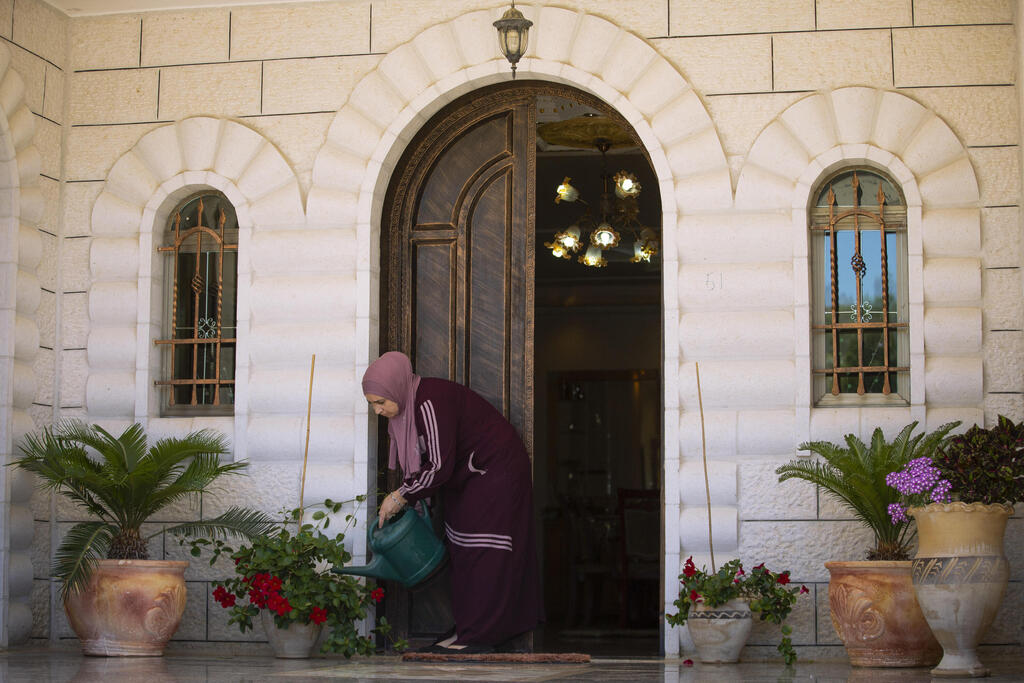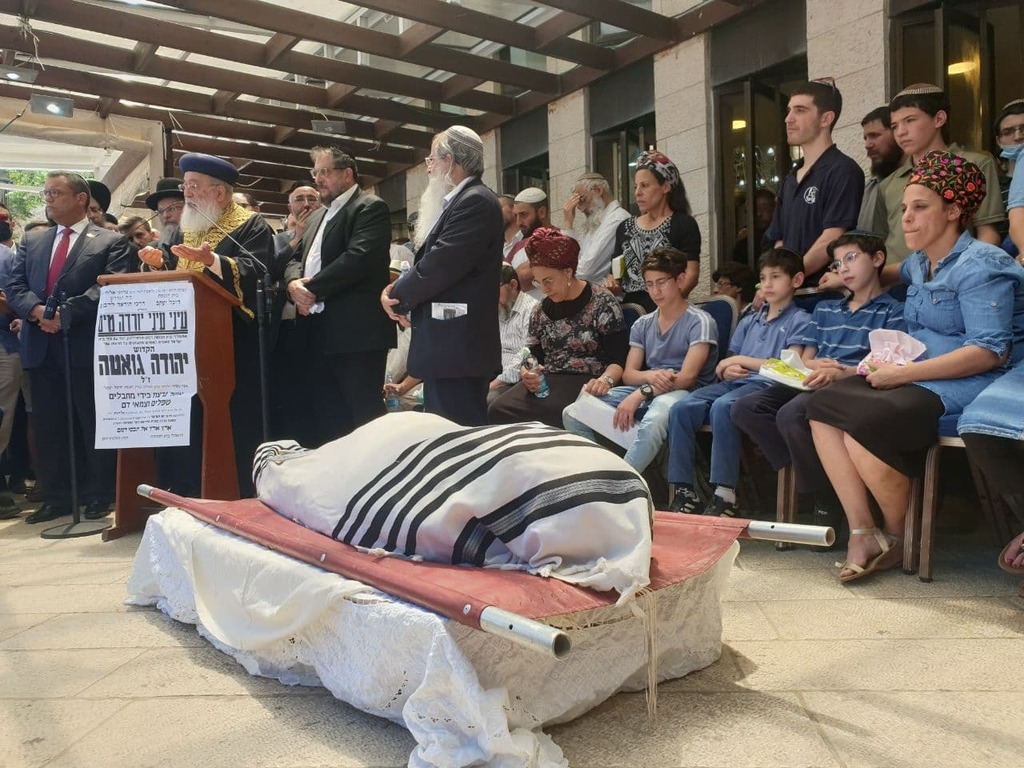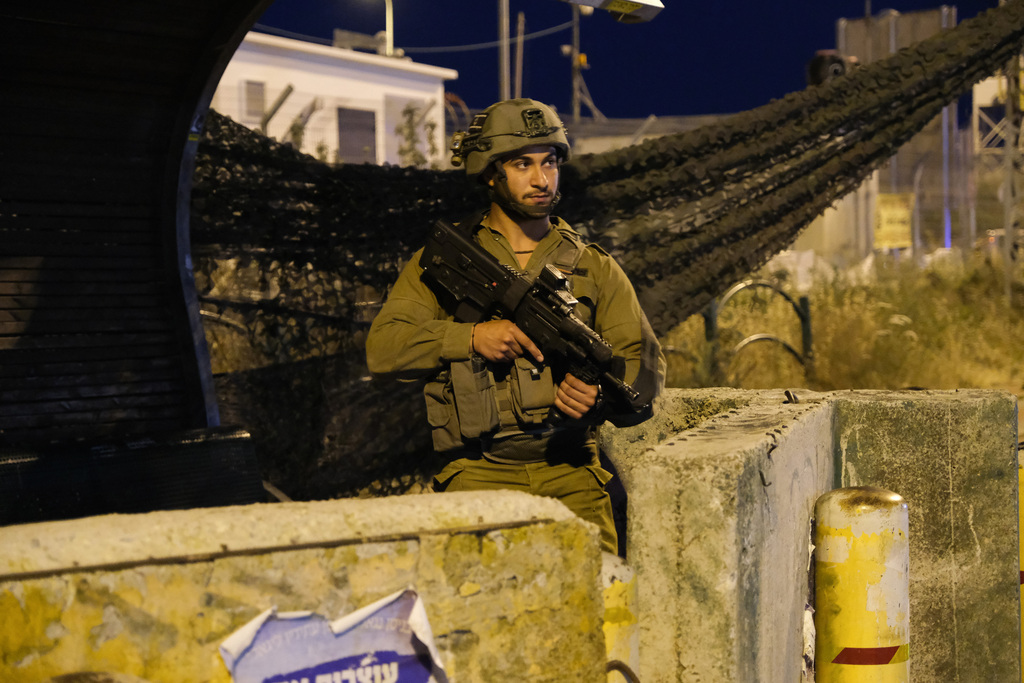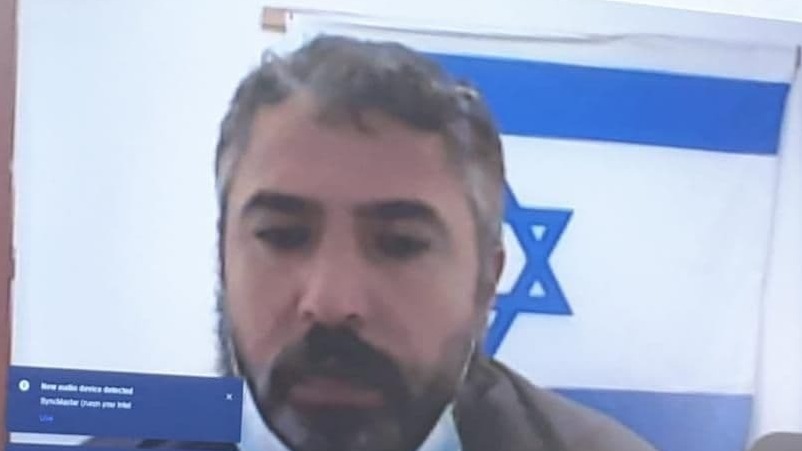Getting your Trinity Audio player ready...
The Supreme Court on Wednesday upheld the decision to destroy the family home of a Palestinian accused of killing an Israeli teenager and whose estranged wife says he has not lived there for years.
The court rejected the petition by Sanaa Shalaby, who lives in the house with their children and says she knew nothing about the attack last month.
4 View gallery


Sanaa Shalaby, the estranged wife of Muntasser Shalaby, outside her home on the West Bank
(Photo: AP)
Muntasser and Sanaa Shalaby, who both have American citizenship, have been estranged for nearly a decade. He lived in Santa Fe, New Mexico, where he ran a profitable smoke shop and married three other women in private Muslim ceremonies not recognized by U.S. authorities.
Shalaby is accused of carrying out a May 2 drive-by shooting in the West Bank Tapuach Junction that killed 19-year-old student Yehuda Guetta wounded two others. He was arrested days after the attack.
4 View gallery


The funeral of Yehuda Guetta, 19, who was murdered last month in the West Bank
(Photo: Yoav Dudkevitch)
Sanaa said they were estranged for several years and that he spent most of his time in Santa Fe.
She said he would return to the West Bank for a month or two every year to visit their three children, aged 17, 12 and 9, who live with her in the home in the village of Turmus Ayya.
HaMoked, an Israeli rights group representing her, said he had a history of mental illness.
In upholding the demolition order, the Supreme Court noted that Muntasser had lived in the home continuously from 2006-2012, before their estrangement, and had resided there for weeks before the attack. It said the petitioners did not present sufficient evidence to show he had suffered from mental illness.
Jessica Montell, the executive director of HaMoked, said the "disappointing" judgment would allow the military to expand the use of punitive home demolitions. Her group is weighing whether to request another hearing and says the court is unlikely to grant one.
"If Mrs. Shalaby's legal recourse has been exhausted, the diplomatic recourse is crucial: Is the U.S. government going to allow this blatant collective punishment against a U.S. citizen mother and three children?"
The case drew attention to Israel's policy of demolishing the family homes of attackers after they have been killed or arrested. Israeli officials say the demolitions deter future attacks, while rights groups view it as a form of collective punishment.
The U.S. State Department has urged a halt to punitive home demolitions. An internal review by the IDF in 2004 reportedly questioned its effectiveness as a deterrent, leading the army to largely halt such demolitions for nearly a decade. It resumed the practice after Hamas terrorists kidnapped and murdered three Israeli teenagers in the West Bank in 2014.
4 View gallery


An IDF soldier at the Tapuach Junction in the West Bank following the deadly May 2 drive-by shooting
(Photo: Yoav Dudkevitch)
The State Department did not immediately respond to a request for comment on the ruling. Earlier this month, it called on Israel and the Palestinians to refrain from any actions that undermine efforts to revive the peace process, including punitive home demolitions.
"The home of an entire family should not be demolished for the actions of one individual," it said.


